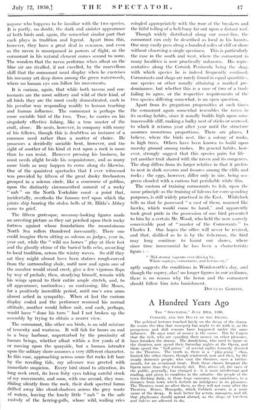A Hundred Years Ago
The political lecturer touched lately on the decay of the drama lie scouts the idea that, monopoly has aught to do with it, as the prosperous and dull seasons have happened under the same influence. He says want of money is the cause. Itut he fargets that the rich, who are spending their money on other pleasores, have forsaken the dratna. The dandylions, who used to figure at the theatres, now spend their Saturday nights at the Opera, and there spend the " half-prioes " of several nights formerly devoted to the Theatres. The truth is, there is a " play-going " class, limited like other classes, though reinforced, now and then, by the steady domestic people, who visit the theatres, once a twelve- month, for an occasional treat. Both these clauses frequent the Opera more than they formerly did. But, above all, the taste of the public, generally, law changed it—it is more intellectual anti reading, and given to ruralities in the suburbs—the people of the town flocking daily, in those huge caravans, the omnibus., to to distance from town which forbids an indulgence in its plenaures. The Theatres must go after them, as they will not come after tho Theatres. Hence, Monopoly, which Cobbett BerMtA, is a main cause of the decay. It were better for actors, mariaigern and all, that playhouses should spread abroad, as the shops of butchers and bakers are allowed to do.




































 Previous page
Previous page